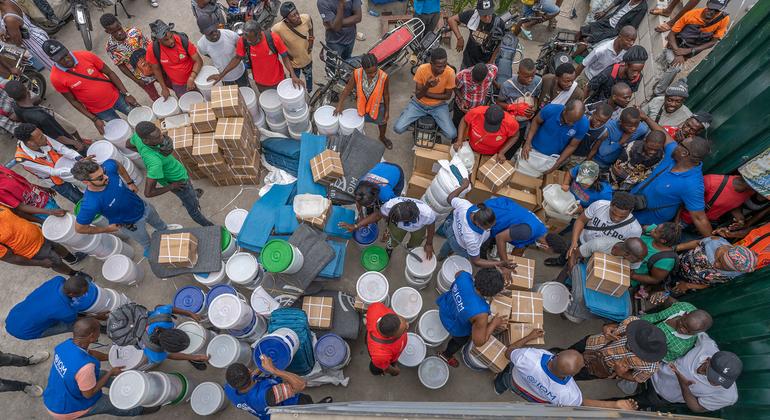The situation in Haiti continues to worsen as more than one million people have been displaced due to ongoing gang violence and deteriorating living conditions. According to the latest data from the International Organization for Migration (IOM), the number of displaced individuals has significantly increased from 315,000 in December 2023 to over 1 million currently.
Kennedy Okoth Omondi, a spokesperson for IOM, stated, “The most concrete data we have is that around 1,041,000 people are currently living in displacement in Haiti. Most of these people have been displaced multiple times.” The majority of those forced to flee their homes have left the capital city of Port-au-Prince, where armed gang violence is rampant, and essential services such as healthcare and food security have collapsed.
In addition to the capital, neighboring provinces have also been impacted by gang violence, leading to an influx of Haitians seeking refuge in other areas. This has overwhelmed host communities and strained limited resources. Omondi highlighted the situation in the Artibonite department, where displacement has tripled in 2024, affecting over 84,000 people.
The violence in Haiti has taken a devastating toll on the population, with the UN human rights office reporting that over 5,600 people were killed in 2024 due to gang violence. Recent incidents have seen hundreds of individuals massacred by gangs, with some victims being dismembered and their body parts thrown into the sea. The UN rights office also documented 315 lynchings of gang members and individuals associated with gangs, some of which were reportedly facilitated by Haitian police officers.
The violence has also targeted journalists, with armed men opening fire on a press conference at the nation’s largest public hospital, resulting in the death of three journalists. The situation has been further exacerbated by the deportation of 200,000 Haitians from the Dominican Republic, putting additional strain on Haiti’s already overwhelmed social services.
As the violence continues, it has become increasingly difficult for humanitarian agencies to reach the most vulnerable populations in displacement sites. These sites, mainly concentrated in the capital, have increased from 73 to 108 within a year, leading to severe overcrowding and a lack of access to basic necessities such as food, water, sanitation, and education.
Mr. Omondi emphasized the deteriorating conditions in these sites, stating, “Reports from these sites reveal deteriorating conditions, with families struggling to survive in makeshift shelters while facing mounting health and protection risks.”
Despite the escalating crisis in Haiti, the UN’s humanitarian response plan for the country remains significantly underfunded. The $674 million plan is only 42% funded, leaving a significant gap in resources needed to address the growing needs of the population.
In conclusion, the situation in Haiti is dire, with over one million people displaced, widespread gang violence, and deteriorating living conditions. Humanitarian agencies are struggling to provide assistance to those in need, and the international community must step up its efforts to support Haiti during this challenging time.









